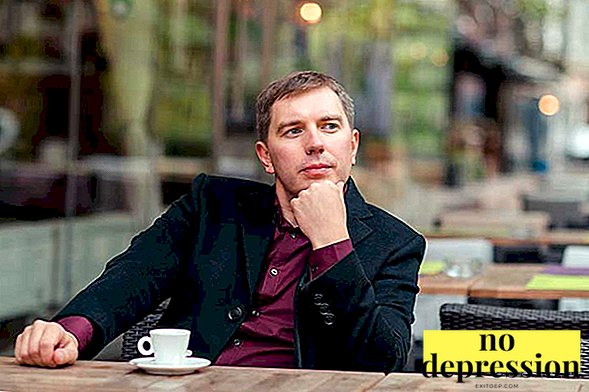The moral of artificial intelligence is one of the issues under discussion among lawyers. If suddenly the "smart" robot is aware of itself as a person and commits a crime, who will be responsible for it - the machine or its creator? But not only developers, but also ordinary people face moral choice. What is morality and why is it so important? What principles guided? How does the Swedish lag help to master the moral principle of the "golden mean"? That is what will be discussed in the article.
What is morality
Morality is a set of generally accepted rules and laws that govern a person’s actions in the public interest. Such a definition is given by dictionaries. But a large number of definitions of morality in modern science suggests that there is no universal content in the concept yet. If we turn to ordinary language, then morality is an internal code or internal scale of good and evil. It is compared to an invisible line, which the inner concepts of right and wrong, good and evil, do not allow a person to cross.
Morality expresses the relation of man to the value of another human life. Cook porridge - a neutral act. But cooking dinner to feed the homeless is a moral deed. Laughter at the sight of someone else's grief is immoral, although initially fun is neutral. The amoral is always disgusting, since it neglects social foundations.
The word "moral" comes from the Latin "mores" - "custom", "character", originally in ancient Rome meant "corresponding to good morals". In XVIII, the term was borrowed from the French language and literally translated as "law-compliant." So etymologically, “morality” and “morality” are synonymous. In literature, morality is the moral teaching, the ethical conclusion of the work.
Morality is a luxury that highly developed communities can afford and at the same time a means of survival. This is the social instinct of self-preservation.saving society from self-destruction. The first moral rules were invented in order to bring the early communities out of chaos into the system. Later laws were invented - a compromise between morality, reality and reason. But unlike legality, customs and etiquette, moral rules have their own specific features:
- Get the ideological justification in the form of the ideals of good and evil, justice.
- Considered as a matter of course, therefore not prescribed at the legislative level.
- Non-observance of these rules causes public condemnation, reprimand.
- Characterized by universality, accessible to any reasonable individual.
- They set general guidelines for behavior, but aim a person at the "ideal of perfection."
Moral principles
Moral - a rather diverse concept, which is considered from the point of view of law, psychology, sociology, theology. In the philosophical doctrine there is a separate subsection - ethics. Ethics provides a scientific, and therefore a critical study of morality. One of the main tasks of ethics is the search for universal principles of morality.
Today, moral principles are formulated that make up a person’s personality:
- Taleon principle, according to which the punishment for an immoral act must exceed the harm from the act itself.
- Principle of moralitywhich eventually turned into a commandment: "act with others as you wish, so that they act with you."
- The principle of "golden mean", which manifested itself in calls to avoid extremes in their actions.
- The principle of maximum happiness, based on the statement that human behavior should improve the lives of others.
- Principle of justice or the need to equate social laws with moral factors.
History of the term "moral"
It is not known exactly when exactly morality entered the public consciousness, but the most ancient sources that have come down to us are the parables of the king. Solomon (ca. 960 BC. e.). Reading his statements, one is struck by examples of the application of moral norms. Later in time Homer The Greeks operated on the concepts of conscience, virtue, honor, legality.
One of the famous philosopher-researchers of morality is considered Confucius. Although he assured that he was not the author of the new teaching, but only conveys to the disciples the wisdom of the ancient sages. Confucius considered it necessary to live according to the basic principles of morality: philanthropy, compassion, and integrity.
For centuries, books with a reflection on morality, ethics, and law written by Cicero. Of course, the ideas of morality in Roman society were not new, but in Cicero's treatment were in high esteem. The main idea of his works: law and morality are inseparable concepts that save humanity from self-destruction. He also introduced the definition of morality, which is quoted today by most sources. Reflections on morality and morals have added the mathematician Pythagoras, philosophers Socrates, Plato, Kant.
Traditional morality is based on faith.. In an ethical sense, God is morality, that is, the idea of God is the eternal value of being, independent of time. About the principles on which a healthy society should be built, spoke Jesus, Moses, Buddha, Mohammed. The commandments "do not steal," "do not kill," are relevant in the XXI century. Morality and religion determine the spiritual life of each person and society as a whole. These concepts are inseparable from each other, because they have the same goals: to help us overcome our own laziness, selfishness, contempt, envy.
Morality in the 21st Century
Nowadays, moral principles are increasingly being declared prejudice. It is believed that the logic can be brought under any morality, and the old, archaic concepts of morality are outdated long ago. Modern theologians, psychologists and philosophers believe that modern public morality must be thought out, justified, reasoned, discussed.
But personal morality is connected with the soul of man and is the result of his personal choice. Nowadays, it is generally accepted that a person is initially characterized by empathy, mercy, altruism, and willingness to cooperate. Scientists say: people make decisions in matters of morality intuitively. Hence the conclusion - morality is not something implanted, it comes from within.
Perhaps immoral people are more successful. But are you happy?
Lagom: the moral of the "golden mean"
The list of leading countries in terms of happiness has not changed for several years. In addition to Finland, Denmark and Canada, it necessarily includes Sweden. In addition to the buffet and the Swedish family, the Swedes lent us the concept "lag"Lagom is the golden mean in the life of each individual person and his interaction with society, which is based on mutual respect and the absence of confrontation. This is the ability to live not just a balanced life, but to find the perfect balance for yourself.
At the household level, lag is considered to be the juxtaposition of excessiveness.. Lag does not call people to become mediocre, indifferent, apathetic or asocial. On the contrary, the Swedes consider an emotionally balanced person self-confident and flexible enough to adapt to the changes around them.
Threads lag around the whole life of the Swedes. Here are some of them:
- Sometimes the envy that we feel towards others is explained by their approach to happiness. Perhaps instead of envy, we could focus on finding our own balance.
- To live in balance with the outside world means to save energy, reuse things, maintain national culinary traditions.
- While eating, it is worthwhile to constantly ask myself: why do I eat these particular foods and how can I avoid what I should not eat.
- Find time to give old clothes and things to the shelter, and not to throw in the trash.
- Buy less, but invest in quality, keep a budget and repay debts on time.
- Sincere "sorry, I can not" better than an unfulfilled promise.
- Moral strength is in teamwork. Keep boasting to a minimum, do what you say and do not be late.
- Get rid of useless junk - in the house and in the head.
- Life in disparity with prosperity is very tiring.
- Learn to listen to your body, mind and conscience.
Findings:
- Morality is the inner vector that tells us our inner values.
- The first moral was formed on the basis of the fact that people needed to streamline their coexistence in order to survive.
- Morality is illogical, but connected with our soul.
- Lag - Swedish law of happiness, which can be adapted to their own lives.



